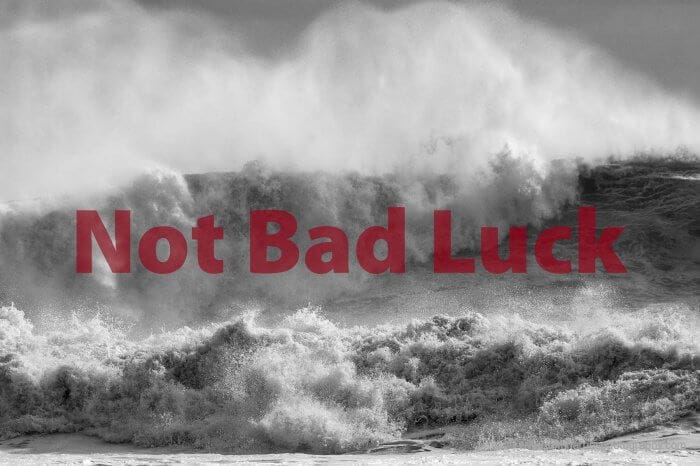
I can’t believe that experienced ocean sailors are still making the mistake of lying ahull in heavy weather and then blaming a freak or rogue wave when they get rolled.
We have known for over 40 years how dangerous lying ahull is.
Extra big waves are a reality in anything over gale force offshore, not freaks, so we need to properly equip and handle our boats to avoid being rolled when, not if, one comes along.

I don’t believe in rogue waves either. In any storm you’ll get some bad ones. I don’t believe in tethering a boat to a piece of gear that will slow your boat down for it to be pounded by waves, either: unless you lack searoom. Running off has to be the best solution if you have room to do so: you retain control and steering way and any blows received from the waves are lessened.
Having said this, my experience is limited to winds under 55 knots and mostly to a small, light (24 feet, 2400lbs) boat and to the North Atlantic. It worked for me.
Hi Jim,
I agree that things like see anchors that nail the boat to the ocean are a bad idea, but the science and years of experience have proved the JSD safer than running off, particularly in really extreme weather. The other benefit of the JSD is that it does not require steering. Much more on this in the Online Book linked to above.
I learned this at about 5, playing in the tub with a toy boat. Then at 20 or so I read that doing nothing was a tactic. I don’t think it took me a year to realize it probably was not.
As for sea anchors, I think that is a topic where it depends on the boat and conditions. Trimarans, for example, can do quite well with a sea anchor (very light, broad bridle), and open transom trimarans don’t fair well with drogues. Additionally, though trimarans resist wind capsize, many trimarans are vulnerable to being rolled by big waves, because the floats are not very high volume and can be pushed under by the weight of the wave.
Generally, I’m a fan of drogues (as you say, being nailed down increases forces) but I’m also a big fan of people practicing in near gale conditions to see what works and get the rigging worked out.